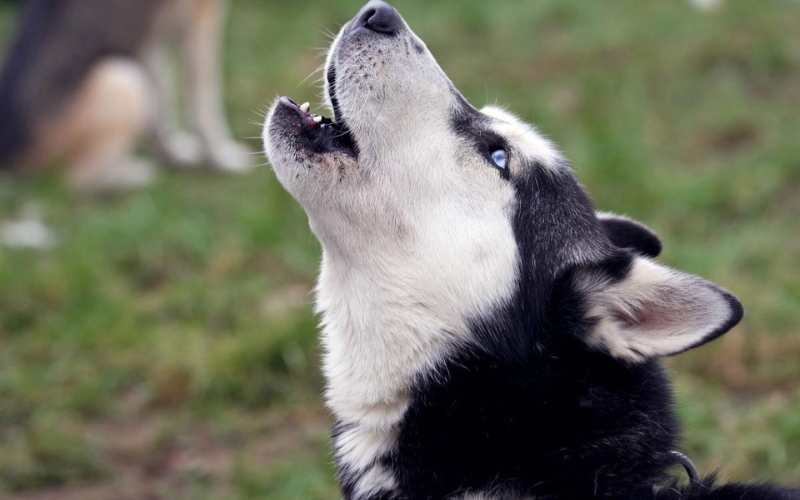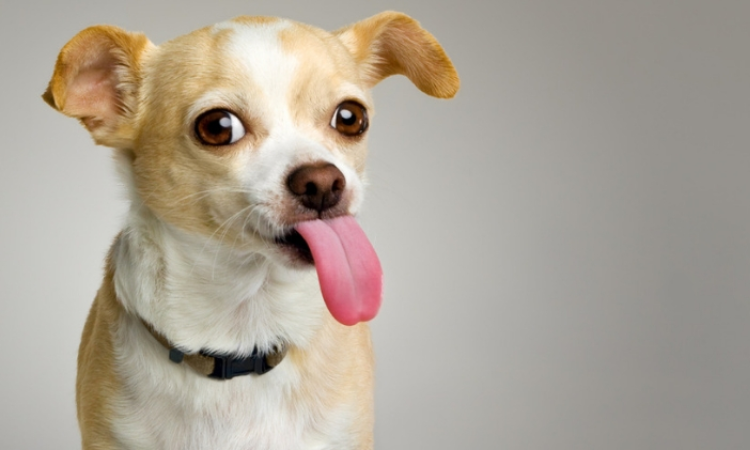The husky is one of the most popular types of dogs. They never stop wailing, crying, whining, or barking—from pups to oldsters. The sociable nature and “communication skills” of Huskies make this a positive trait, so don’t take it the wrong way. As pack working dogs, Huskies are used to being in close proximity to their human and canine companions and are required to “talk” with them frequently.
Have you ever considered the reasons behind huskies’ howling? Sled-pulling dogs are not howlers by nature. It’s a trait we normally associate with wolves rather than pet dogs. While other dog breeds may occasionally let out a howl, no species howls with the same frequency or obsession as huskies.
Why Do Huskies Howl?
1. Huskies Are Genetically Closer to Wolves Than Most Dogs
The husky’s genetic makeup is quite similar to that of ancient Siberian wolves, according to numerous studies comparing canine and husky DNA. The Taimyr wolf of North Asia is the more direct ancestor of the Siberian Husky. Selective breeding has resulted in modern Siberian Huskies having a smaller, more diverse body type and a wider range of striking coat colors.
You shouldn’t worry too much about the genetic abnormalities. Maybe this is the reason why wolfdogs and huskies get along so well with one another. However, many fundamental behaviors have a genetic basis, and this is true for dogs, wolves, and even humans.
2. Long-distance Communication
Wolf packs use the howl as a means of long-distance communication with one another and with other packs. A howl is much more effective than a bark in this situation since it can carry over longer distances and overcome obstacles like wind. However, a quick bark may go unnoticed by its intended target.
In the event that a group of Huskies or their human companions become separated when sledding, it is essential that they be able to communicate over long distances with both the other dogs and the humans. Sledding has long been used as a means of travel, commerce, and communication in the northern latitudes of both North America and Asia.
3. When They Feel Happy
Don’t freak out if your Husky starts howling; it could just mean that he’s happy and you’re reading too much into it. Envision yourself yelling with joy when something fantastic happens out of the blue. Huskies may do this for similar reasons as when you come home from work or when you take them to the dog park and meet another dog.
There is a noticeable acoustic distinction between happy and sad sobs. The howl of a Husky is difficult to define because of the individuality of each dog. You may be able to distinguish a happy howl from a sad one once you’ve heard your Husky’s howls on a regular basis.

4. When They Are Anxious
When a Husky is feeling down, lonely, or afraid, it may let out a mournful howl. Because Huskies are a breed prone to separation anxiety, they will often scream at the door while you are at work. There is a good chance that the howl is more than just a sad expression and is, in fact, a desperate plea for you to return home.
These sobs take on a new level of anguish when they are shed over the bodies of loved ones who have passed away. However, these “sad howls” can also be rather subtle, as in the case of being denied a treat or a toy by your Husky.
5. In Response to High-pitched Sounds
Your Husky may also start howling at unusually loud noises. Huskies are smarter than to mistake a whistle for the howl of another dog, therefore this may or may not be the cause. Since howling is their native tongue, wolves also have a vast advantage over humans when it comes to deciphering human speech. However, your Husky will likely let out a quick yell in response to most whistling sounds. It’s only human nature to want to do that.
6. When They Are Bored
When a Husky howls, it’s usually only to express how bored it is. Sometimes we just want to scream, “Gah, I’m bored!” and that’s what this is. It’s funny most of the time, but it may be annoying if it happened at night. Problems with your landlord or noisy neighbors can be exacerbated if you live in an apartment building.
Do Husky Puppies Howl?
Many people wish to know, “Do husky puppies howl?” as well as “Why do huskies howl?” It takes time for a Husky puppy’s vocal cords to mature. Thus, you may observe your baby Husky attempting to howl, but it will be a few months before it can successfully do so. There will likely be a lot of cute barking and whimpering for the time being.
A Husky puppy may take up howling a little faster if it is raised beside an older Husky. It’s a fact that husky puppies that don’t spend their formative years in the company of adult huskies tend to develop a more subdued howl. Therefore, if you want a husky that doesn’t make a lot of noise howling as an adult, you should purchase one as soon as a pup is available.
If you already have an adult dog that is not a Husky, he or she can help train your Husky pup to bark and whimper instead of howl. You can’t always control your Husky’s instincts, and there are times when they will win out.
Final Thoughts
To what end, then, do Huskies sound off with their howls? Because they are derived from wolves, they can only communicate in this way. Like getting a Chihuahua that shivers at temperatures below 70 degrees Fahrenheit or a Bulldog that drools constantly, you should be prepared for this before getting a husky.
Communicating is fun for huskies. Although it’s best to train and teach your husky when howling is appropriate and when it isn’t, you can’t really expect it to quit howling on its own. Accept your dog’s wolfish features as best you can. Most Husky owners would agree that is one of the breed’s defining characteristics.





